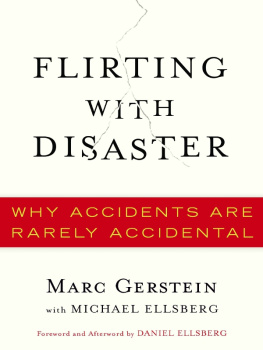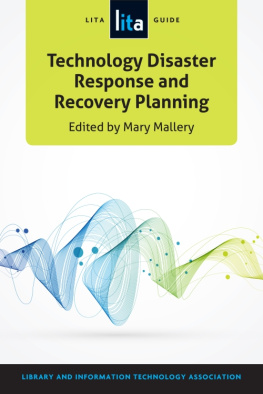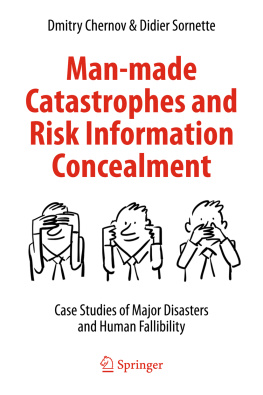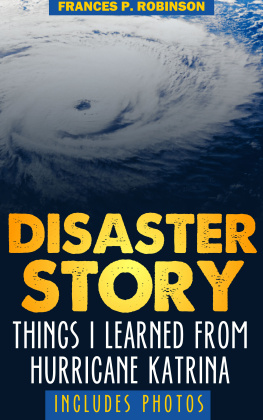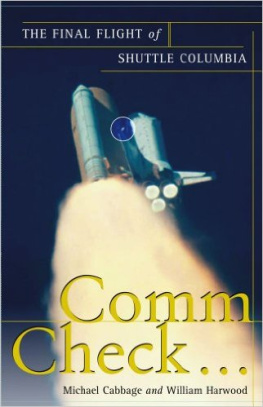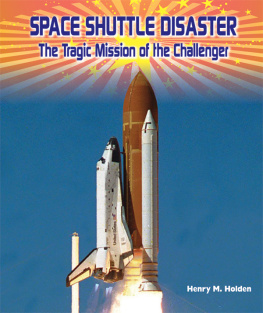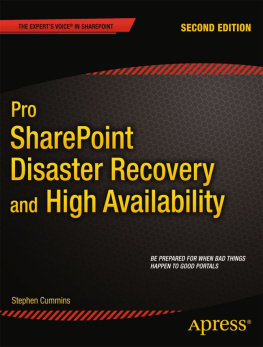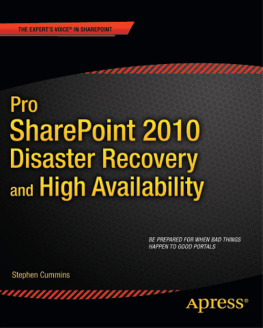FLIRTING
WITH
DISASTER
FLIRTING
WITH
DISASTER
WHY ACCIDENTS ARE
RARELY ACCIDENTAL
M ARC G ERSTEIN
with MICHAEL ELLSBERG
Foreword and Afterword by DANIEL ELLSBERG

New York / London
www.sterlingpublishing.com
For Judi and Jamiemy reasons for
trying to make the world a little safer.
STERLING and the distinctive Sterling logo are
registered trademarks of Sterling Publishing Co., Inc.
Library of Congress Cataloging-in-Publication Data Available
10 9 8 7 6 5 4 3 2 1
Published by Sterling Publishing Co., Inc.
387 Park Avenue South, New York, NY 10016
2008 by Marc Gerstein
Foreword and Afterword 2008 by Daniel Ellsberg
Distributed in Canada by Sterling Publishing
c/o Canadian Manda Group, 165 Dufferin Street
Toronto, Ontario, Canada M6K 3H6
Distributed in the United Kingdom by GMC Distribution Services
Castle Place, 166 High Street, Lewes, East Sussex, England BN7 1XU
Distributed in Australia by Capricorn Link (Australia) Pty. Ltd.
P.O. Box 704, Windsor, NSW 2756, Australia
Book design and layout: Scott Meola
Manufactured in the United States of America.
All rights reserved.
Sterling ISBN-13: 978-1-4027-5303-9
ISBN-10: 1-4027-5303-9
For information about custom editions, special sales, premium
and corporate purchases, please contact Sterling Special Sales
Department at 800-805-5489 or specialsales@sterlingpublishing.com.
CONTENTS
by Daniel Ellsberg: Learning from Past Disasters, Preventing Future Ones
Understanding Uncertainty:
Why Did So Many People Bet Against Katrina? |
Space Shuttle Challenger: Cold, Warm, and
Hot Causes of Disasters |
Chernobyl, Faulty Design, and the Interplay
of Humans and Technology |
When All the Backups Failed: How American F-15s
Accidentally Shot Down Two U.S. Army Black Hawks |
Butterfly Wings and Stone Heads: How Complexity
Influences Catastrophe in Policy Decisions |
The Collapse of Arthur Andersen:
The Role of Organizational Culture |
When Countries Go Bankrupt:
The Prisoners Dilemma Writ Large |
by Daniel Ellsberg: When the Leaders Are the Problem
Learning from Past Disasters, Preventing Future Ones
I have participated in several major organizational catastrophes. The most well known of them is the Vietnam War. I was aware on my first visit to Vietnam in 1961 that the situation therea failing neocolonial regime we had installed as a successor to French rulewas a sure loser in which we should not become further involved. Yet a few years later, I found myself participating as a high-level staffer in a policy process that lied both the public and Congress into a war that, unbeknownst to me at the time, experts inside the government accurately predicted would lead to catastrophe.
The very word catastrophe, almost unknown in the dry language of bureaucracy, was uttered directly to the president. Clark Clifford, longtime and highly trusted adviser to U.S. presidents, told President Lyndon Johnson in July 1965: If we lose fifty thousand men there, it will be catastrophic in this country. Five years, billions of dollars, hundreds of thousands of menthis is not for us....
But it was for us, casualties included, after Johnson launched an open-ended escalation just three days later. In time, Cliffords estimates were all exceeded: Before our ground war was ended in eight years (not five), the cost in dollars was in hundreds of billions, over five hundred thousand men served in Vietnam in a single year (1968) out of three million altogether, anduncannily close to his predicted figuremore than fifty-eight thousand soldiers had died. Cliffords prophecy in his face-to-face session with the president at Camp DavidI cant see anything but catastrophe for our nation in this areacould not have been more urgent in tone or, tragically, more prescient.
And Cliffords was not a lone voice. Johnsons vice president, Hubert H. Humphrey, had used almost the same words with him five months earlier; others, including Johnsons career-long mentor Senator Richard Russell, had also made the same argument. Yet Johnson went ahead regardless.
Why? I have pondered and researched that question for forty years. (The documentation in the Pentagon Papers provides no adequate answer.) But one seemingly plausible and still widely believed answer can be ruled out. The escalation in Vietnam was not the result of a universal failure of foresight among the presidents advisers, or to a lack of authoritative, precise, and urgently expressed warnings against his choice of policy.
The nuclear arms race, in which I was intimately involved between 1958 and 1964 as a RAND Corporation analyst serving the executive branch, is a moral catastrophe on a scale without precedent in human history, even though its full tragic potential has not yet occurred. The arms race involvedunder both Democratic and Republican administrations, soon joined by the USSRthe mutual construction of a physical and organizational capability for destruction of most of the worlds population within a matter of hours. That projectbuilding two matched and opposed doomsday machines and keeping them on hair-trigger alertis the most irresponsible policy in human experience, involving as it does a genuine possibility of creating an irreversible catastrophe for humanity and most other living species on a scale that the world has not seen since the dinosaurs perished sixty million years ago. Even if the system were decommissioned totallyand it is not yet remotely close to being dismantledsuch a course of action would not cancel out the fact that over the past sixty years, a moral cataclysm has already occurred, with ominous implications for the future of life on earth.
I have been trying since 1967when I realized that the Vietnam War must endto understand how we got into that war, and why it was so hard to end it. Since 1961, even earlier, I have viewed the nuclear arms race as an ongoing catastrophe that has to be reversed, and a situation that has to be understood. I assumed then, and still believe, that understanding the past and present of these realities is essential to changing them. In my life and work, I have tried to do what Dr. Gersteins book is trying to help us do: to understand these processes in a way that will help us avert them in the future.
A major theme to be gained from this important book is that organizations do not routinely and systematically learn from past errors and disastersin fact, they rarely ever do. This intentional lack of oversight can partly explain why our predicament in Iraq is so precisely close to the Vietnam experience, both in the way that we got into the war, deceptively and unconstitutionally, and in the way the war is being conducted and prolonged.
It might not seem surprising that after thirty years, a generation of decision-makers and voters would have come along that knew little about the past experience in Vietnam. What is more dismaying is to realize that much the same processesthe same foolish and disastrous decision-making, the same misleading rationales for aggressionare going on right now with respect to Iran, with little political opposition, just three years after the invasion of Iraq, and while the brutal and tragic consequences of that occupation are still in front of our eyes every day.
Next page
